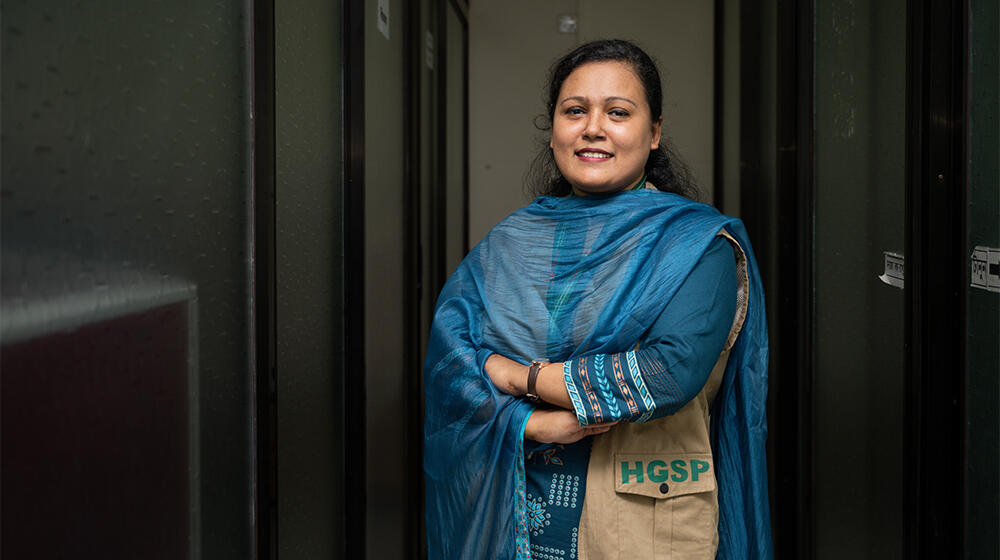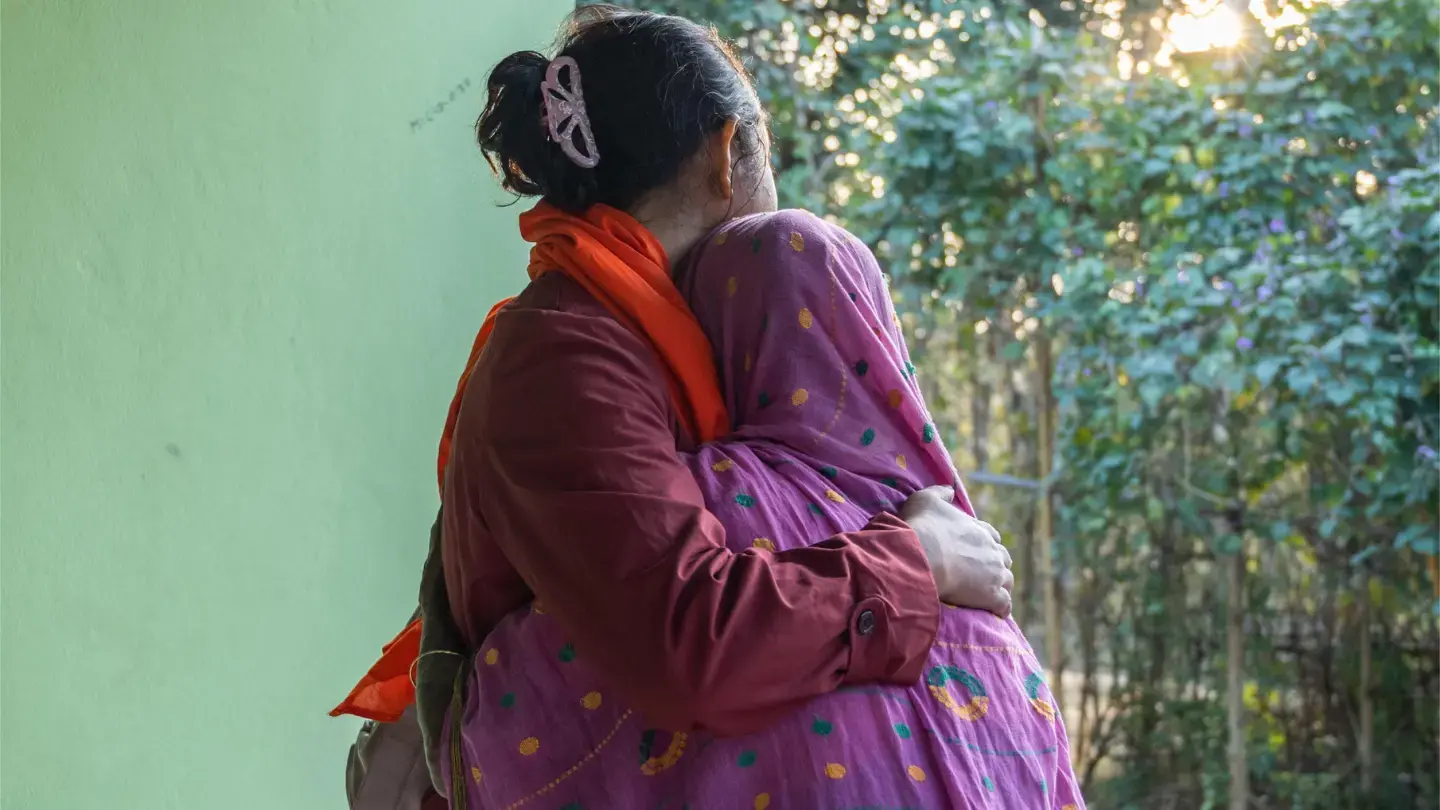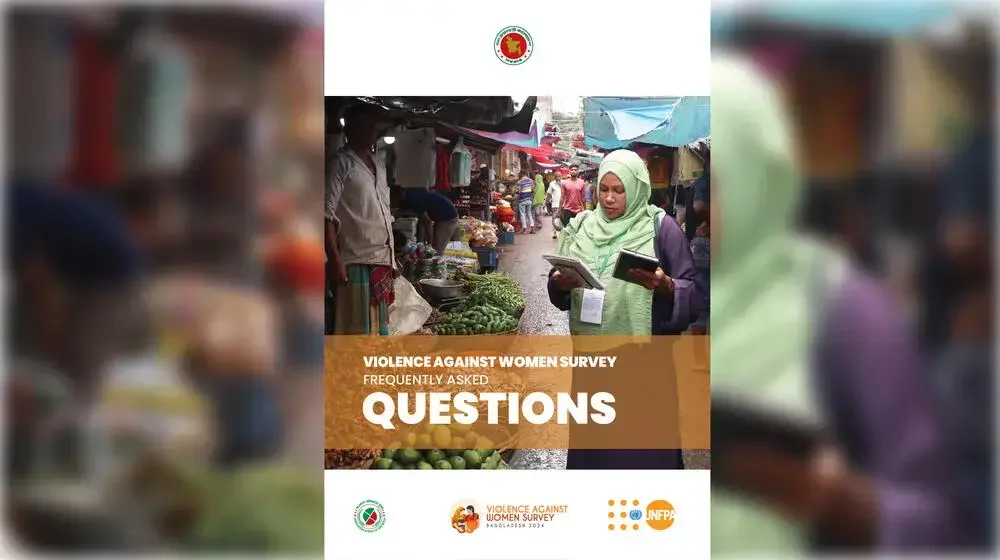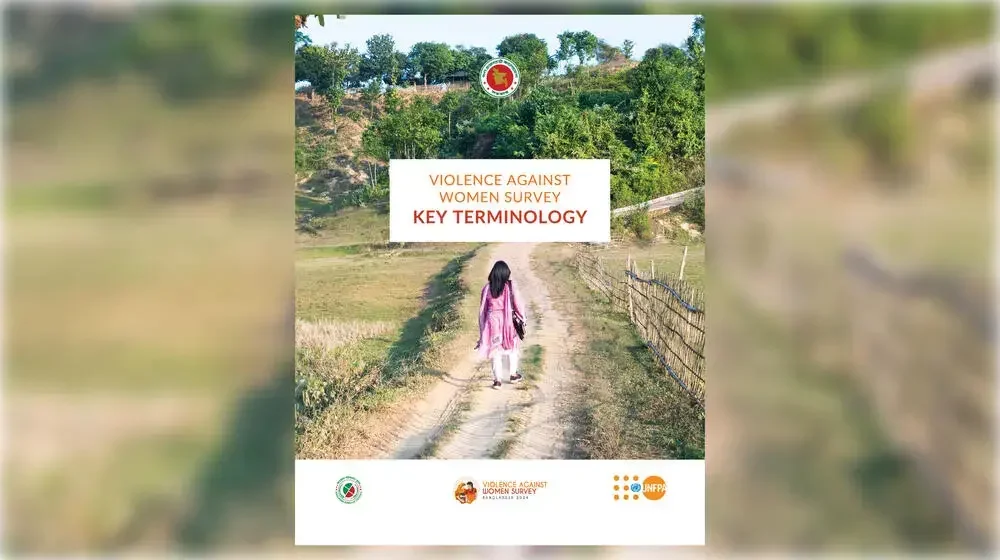As a Mental Health & Psychosocial Support (MHPSS) Counsellor, Nazneen's work with survivors of gender-based violence at the One-stop Crisis Center in Cox's Bazar District Hospital was not something she had always planned for.
However, arriving in Cox’s Bazar from her hometown Chandpur, she was struck by the unmet need for mental health services among women and girls, both from the Rohingya and the host communities, who had experienced gender-based violence.
“The urgency was undeniable. There was so much work to be done. I had the skills, and I thought I could make a difference. So I stepped into this role,” she said.
While case workers at One-stop Crisis Center (OCCentre) are equipped to provide psychological first aid (PFA), they refer survivors to Nazneen for specialized mental health services. As a counsellor, she supports survivors with acute stress, suicidal ideation, and serious disorders such as depression and post-traumatic stress disorder (PTSD).

Among the many transformations Nazneen witnessed, one survivor's transformation would remain engraved in her memory. It would go on to define her very career.
During their first encounter, she found the survivor completely broken, both physically and psychologically. The woman spoke of closing her business, of disappearing altogether, withdrawing from life itself.
“I worked with her to regain her confidence and health, piece by piece. Today she is back at running her business,” Nazneen shared.
This survivor’s transformation made Nazneen's faith in her work ironclad, and, in her own estimation, it remains her greatest case management success.
"It is heartbreaking to see someone completely lose hope and give up on life, but we are here to remind them of their inherent strength and worth, and connect them with resources that can quite literally save their lives" she added.
As for the community at large, Nazneen has personally witnessed two significant changes since the Health and Gender Support Project (HGSP) began. First, survivors are visiting the OCC after hearing about its services through the project's community mobilisation initiatives, targeting all demographic groups, including men, women, boys, and girls. This is evidenced by school-going girls visiting the hospital just to take note of the OCC's location.
"For the OCC to work, people have to first know about it. And they know now," Nazneen emphasized.
Second, the rising number of cases reported at the OCC reflects a growing number of survivors finally seeking support.
“We even know of instances where survivors have been referred to the OCC by other survivors who had visited the facility first and gained positive experiences,” Nazneen noted.

She is keenly conscious of the toll that this line of work could take. "Secondary trauma is very common among caseworkers," she explained. "Part of what we do is honest self-assessment. Are we in a place to offer support today? If not, what steps can we take to recharge and return at our best?”
While regular self-care training is provided under the project, Nazneen champions the message further. Taking care of their mental health and supporting each other, she emphasises to her team, is not self-serving – it is the very foundation of their ability to truly support those in need.
With World Bank’s funding and UNFPA's technical support, the Ministry of Health and Family Welfare launched the Health and Gender Support Project in 2021. Through this project, over 5,000 women and girls have accessed life-saving support from the One-Stop Crisis Cells and Centre in Cox’s Bazar. Outreach efforts have informed more than 10,000 women and girls about these services.





